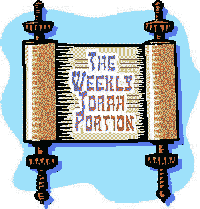Search our Archives:
» Home
» History
» Holidays
» Humor
» Places
» Thought
» Opinion & Society
» Writings
» Customs
» Misc.
|
The Paths of Praise
By Michael Chessen
In the reading of B'shlach, the people of Israel witness the most
singularly defining miracle of the Exodus, the splitting of the Red Sea.
Whereas each of the ten plagues was certainly wondrous and highly
instructive to the Jewish people as well as to the Egyptians, no plague
on
its own was necessarily synonymous with our very physical salvation. In
the
case of Israel appearing to be trapped between the advancing Egyptian
army
and the sea, however, Moses tells the people to merely "sit quietly" in
order to witness their redemption (Exodus 14:14).
Having crossed the split sea and witnessed it subsequently close
upon
and drown the Egyptians, the spectacle of salvation having in fact come
as
timely and as "simply" as Moses had assured them it would, caused the
people of Israel to join him in praise, or "shira" to God.
The Talmudic sages divide the act of our reciting praise to God
into
two categories: while one is the ecstatic-leaning and perhaps more
spontaneous acknowledgment of miracles, the other is a more "routine"
expression of thanks for God's benevolent day to day care for us and our
world. In both of these manners of praise, the Song at the Sea occupies
a
central niche.
The inspiration of the miraculous splitting of the Red Sea is
something to which we seek to connect on a very select group of
designated
days of the Jewish calendar through our recitation of the Hallel prayer.
However, our rabbis strongly caution against seeking to recreate the
jubilation associated with miracles on a daily basis. Instead, we are to
busy ourselves with our more conventional "work of the heart", daily
prayer
according to our established liturgy, which includes the Song at the
Sea,
and its praise of God's ongoing providence in our lives.
The need for us to emphasize the "routine" over the miraculous is
something which has its antecedents in the process that the people of
Israel went through in making their transition from a slave to a
priestly
nation. Following the Song of the Sea, their sudden grumbling against
God
for want of water demonstrated just how "miracle dependent" they yet
were
as newly liberated slaves. After having their thirst satiated, and they
then complain that they have no food, the process of the people's
"re-education" begins. For while the manna arrives by miraculous means,
its
continued reception carries definite stipulations. The adherence to
these
will accompany us until we are growing our own wheat, and help to ensure
that we bear in mind that regardless of how we manage to feed ourselves,
we
always recognize that all nourishment emanates from the hand of God.
Wishing you all a Shabbat Shalom!

|
|
Please let us know if you see something unsavory on the Google Ads and we will have them removed. Email us with the offensive URL (www.something.com)
|





|
